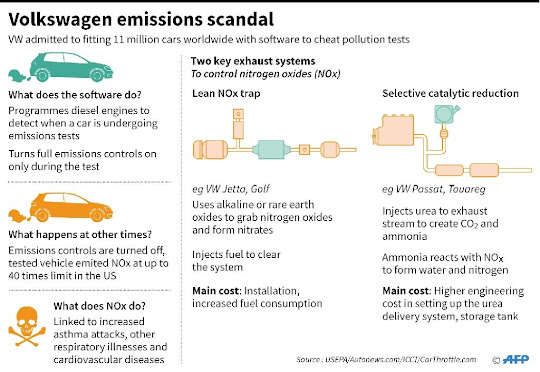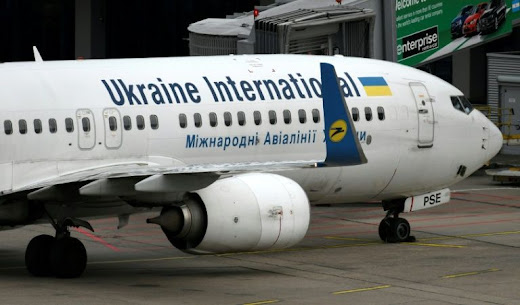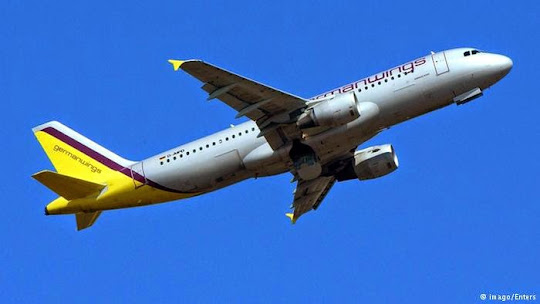The pilots
of AirAsia Flight QZ8501 cut power to a critical computer system that normally
prevents planes from going out of control shortly before it plunged into the
Java Sea, two people with knowledge of the investigation said.
The action
appears to have helped trigger the events of Dec. 28, when the Airbus A320
climbed so abruptly that it lost lift and it began falling with warnings
blaring in the cockpit, the people said. All 162 aboard were killed.
The pilots
had been attempting to deal with alerts about the flight augmentation
computers, which control the A320’s rudder and also automatically prevent it
from going too slow. After initial attempts to address the alerts, the flight
crew cut power to the entire system, which is comprised of two separate
computers that back up each other, the people said.
While the
information helps show how a normally functioning A320’s flight-protection
system could have been bypassed, it doesn’t explain why the pilots pulled the
plane into a steep climb, the people said. Even with the computers shut off,
the pilots should have been able to fly the plane manually, they said.
Airbus discourages
pilots from cutting power to systems because electronics in the highly
computerized aircraft are interconnected and turning off one component can
affect others, John Cox, a former A320 pilot who is now a safety consultant,
said in an interview.
“Particularly
with an Airbus you don’t do that,” said Cox, chief executive of
Washington-based industry consultant Safety Operating Systems.
Flight 8501
climbed more than 5,000 feet (1,524 meters) in less than 30 seconds, rising
above the altitude where it was authorized to fly, Ertata Lananggalih, an
investigator with Indonesia’s National Transportation Safety Committee, said in
Jakarta on Thursday.
The
co-pilot, with 2,247 hours of flying experience, was at the controls and
talking to controllers while the captain, who had 20,537 hours, was monitoring,
said Mardjono Siswosuwarno, the lead investigator of the crash. The account was
the first description of the last moments of the flight.
The
investigators didn’t address whether pilots had cut power to the flight
augmentation computer system and said they wouldn’t release more information on
the case.
Airbus is
barred from commenting on the accident under international investigation
treaties, the company’s North American spokesman, Clay McConnell, said in an
e-mail.
From a
cruising altitude of 32,000 feet, the single-aisle A320 climbed to 37,400 feet
as pilots probably tried to avoid bad weather, Ertata said. The aircraft then
descended slowly for three minutes before it disappeared, he said.
“The pilots
were conscious when the maneuver happened,” he said. “They were trying to
control the airplane.”
Such an
abrupt climb would almost certainly cause a rapid loss of speed and a “very
pronounced stall,” Cox said.
The
aircraft, operated by the Indonesian affiliate of Malaysia-based AirAsia,
disappeared from radar en route to Singapore from Surabaya.
Indonesia
won’t release a preliminary report on its investigation into Flight 8501
because fact-findings could change rapidly, Tatang Kurniadi, head of the
commission, said Thursday. Indonesia sent the preliminary findings to all
countries in the investigation on Jan. 28, Tatang said.
The pilots
had sought permission from air traffic control to turn left and then climb to
38,000 feet because of storm clouds. Four minutes after the request, a
controller cleared the pilots to climb to 34,000 feet, he said.
Satellite
imagines showed storm clouds that reached as high as 44,000 feet, according to
investigators.
The
aircraft was in “good condition,” Mardjono said.
All Airbus
models produced since the 1980s are designed to prevent pilot errors from
causing crashes. The planes are controlled by multiple flight computers, which
limit pilots from overly steep turns or getting too slow.
In the
event of a malfunction or loss of power, the flight protections will shut down
and leave the pilots to fly the plane manually. That appears to be what
happened before Flight 8501 entered the steep climb and stalled, the two people
said.
Investigators
are still trying to determine why the pilots would cut power to the flight
augmentation computers by pulling a circuit breaker in the cockpit.
Indonesian
authorities have so far recovered at least 70 bodies. Investigators still
haven’t managed to lift the jet’s fuselage. The tail section of the plane has
been retrieved. Indonesia’s military pulled out of the search this week.
The
cockpit-voice recorder captured the pilots’ voices and no explosion was heard,
Nurcahyo Utomo, an investigator with the committee, said last week. The
flight-data recorder captured 1,200 parameters and the voice-recorder captured
the last two hours and four minutes of the flight, the investigators said. The
two devices are called the black boxes. After studying data from the black
boxes, authorities ruled out terrorism as a factor that brought down the plane.
Flight 8501
appeared to have stalled after climbing steeply, Minister of Transportation
Ignasius Jonan said earlier this month. A stall occurs when airflow over the
wings is disrupted or becomes too slow to provide lift and keep a plane aloft.
Indonesia
has said it intends to shut the agency responsible for coordinating aircraft
flight slots in three months. That’s after the AirAsia flight took off on a
Sunday, without a Ministry of Transportation permit to fly that day.
The
government has suspended the license of AirAsia for that route, found other
airlines in breach of permits and removed officials involved from the ministry,
AirNav Indonesia and state airport company Angkasa Pura 1.
AirAsia
made an administrative error in flying QZ8501 on Sunday, Indonesia AirAsia
chief executive Sunu Widyatmoko said Jan. 13. The carrier didn’t inform the
Directorate of Air Aviation on the schedule revision, he told parliament in a
hearing.
Bloomberg






















